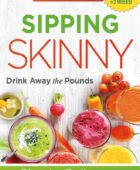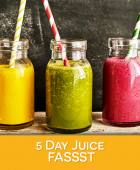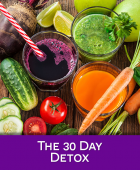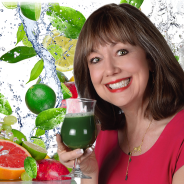Sugar and Inflammation
For the last four decades, Americans have avoided fats and gorged on sugar. Sugar is a leading contributor to type 2 diabetes, Parkinson’s, Alzheimer’s, MS, metabolic syndrome, and excessive weight gain. It also increases the risk of heart disease, certain cancers, high blood pressure, and osteoporosis; actually nearly every disease has a link to sugar.
Sugar in the amount that the typical Americans eat (about 64 pounds a year) continually upsets our body chemistry and causes the inflammatory process that leads to disease. The less sugar you eat, the less inflammation, and the stronger your immune system, which defends us against infectious and degenerative diseases.
Excess sugar in the blood causes glycation, a process where a sugar molecule binds to a protein or a fat, and leads to the formation of advanced glycation end products (AGEs). AGEs are inflammatory; they are associated with type 2 diabetes, aging, and many diseases.
Don’t be fooled. Sugar is hidden in packaging in many different forms: high fructose corn syrup, corn syrup solids, sucrose, maltose, dextrose, fructose, glucose, galactose, lactose. When a manufacturer wants to sweeten up a certain brand of cereal, for example, it can either do this using 15 grams of sugar, or, 5 grams of malt syrup, 5 grams of invert sugar, and 5 grams of glucose. Some manufacturers seem to be choosing this divide and masquerade method, placing these ingredients lower down on their products’ lists, making the public believe that the amount of sugar in the product is smaller than it is.
It’s all still sugar: Cane juice, dehydrated cane juice, cane juice solids, cane juice crystals, dextrin, maltodextrin, dextran, barley malt, beet sugar, caramel, buttered syrup, carob syrup, brown sugar, date sugar, malt syrup, diatastic malt (enzymes that breakdown starch into sugar), fruit juice concentrate, dehydrated fruit juice, fruit juice crystals, golden syrup, turbinado, sorghum syrup, molasses, refiner’s syrup, ethyl malitol, maple syrup, yellow rock sugar, and sugar alcohols such as sorbitol and mannitol.
Healthy Alternative Sweeteners
- Stevia (recommend Sweet Leaf Vanilla Creme)
- Coconut sugar and coconut nectar
- Small amounts of pure maple syrup
- Small amounts of local raw honey










Thanks for the info.–have heard this since (prob.) the 70’s, but, it always bears repeating!
What about using xylitol? i occasionally buy gum/small mints sweetened with xylitol.
Thanks, joan
My health practitioner has recently been to a conference where a dentist warned again xylitol because it destroys microbiomes.
Thanks so much for the information on sugar. I have a tendency to forget how harmful it is. I have a lot of inflammation so I really have to get more serious about eliminating all sugars.
My husband likes his ice cream now and then, would it be better to buy him sherbet?
Also, are there some honeys to avoid?
I eat raw honey and pure buckwheat honey
Why is truvia not listed among the healthy alternatives for sugar?
It’s listed as stevia; Truvia is just the brand name.
Truvia contains a sugar alcohol (Erythritol).
A good reason to avoid Truvia. I didn’t know it contained a sugar alcohol.
At your health retreat I attended a couple of years ago (fabulous by the way!), you mentioned getting xylitol from a source that did not involve the bad kind of processing that most xylitol undergoes. What is that brand/source? I also recently heard about stevia extract powder. Do you have more information on that? Thanks!
Xylitol from birch bark is good. Ultimate Sweetener is the brand. Stevia is good. I like Sweet Leaf Vanilla Creme.
I was wondering if there is a stevia that has way less of that aftertaste? I really like using the stevia but it does have an after taste I could do without. Thanks, Kimmie
Hi:
Thanks for the article. I have had a high intolerance to sugars and carbs for many years, which tends to make life rather challenging at times. These articles help alert the public to the dangers of dietary imbalances, etc. Would t be possible to start including some nutritious soups in your recipes? I tend to have difficulties with fruit juices, my body just will not tolerate them.
Thanks for this consideration.
w
w
ould it be possible to include soups
I could include a soup in one of my newsletters. Also, in any of my recipes, you can leave out the fruit. I have lots of soup and other recipes in The Juice Lady’s Anti-Inflammation Diet.